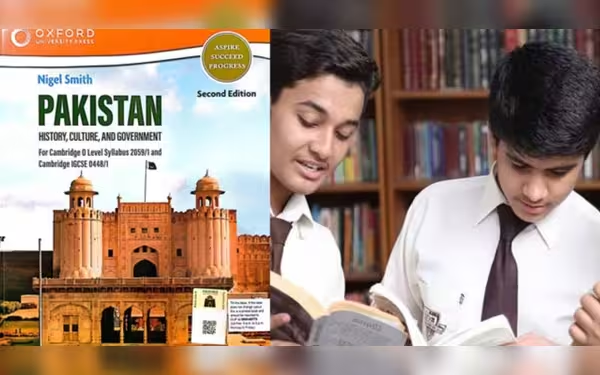Tuesday, July 2, 2024 03:48 PM
Punjab Government Bans O-Level History Book
- Controversy over ban on 'The History and Culture of Pakistan' book
- Lack of transparency in reasons for prohibition raises concerns
- Debate highlights importance of academic freedom and diverse perspectives
 Image Credits: dailypakistanen
Image Credits: dailypakistanenThe Punjab government's ban on the O-level history book 'The History and Culture of Pakistan' has sparked controversy and raised concerns about academic freedom and transparency in educational decision-making.
In a recent development, the government of Punjab in Pakistan has stirred up controversy by imposing a ban on a history book meant for O-level students. The book in question, 'The History and Culture of Pakistan,' authored by Nigel Kelly, has been officially prohibited by the School Education Department of Punjab. This decision has sparked debates and concerns among students, parents, and educators alike.
The ban on the O-level history book was first implemented in May of the previous year by the Punjab curriculum and textbook board based in Lahore. A recent notification dated June 13 reiterated the ban, emphasizing the strict enforcement of the directive. Despite these actions, the authorities have not provided specific reasons for the ban, leaving many puzzled about the rationale behind such a decision.
The ban on the history book has raised questions about academic freedom and the role of foreign-authored textbooks in Pakistan's educational system. Students and parents have expressed concerns about the impact of such censorship on their learning experience and access to diverse perspectives. The lack of transparency regarding the reasons for the ban has further fueled the controversy, with calls for greater clarity and accountability from the authorities.
The ban on 'The History and Culture of Pakistan' for O-level students in Punjab has sparked a heated debate within the educational community. As the controversy continues to unfold, it underscores the importance of open dialogue, critical thinking, and respect for academic freedom in shaping a well-rounded educational environment for students. Moving forward, it is essential for stakeholders to engage in constructive discussions to address concerns and ensure a balanced approach to curriculum development and textbook selection.













